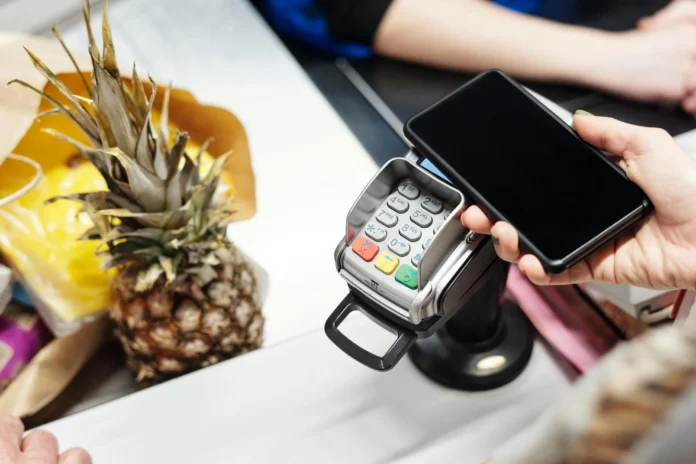Artificial intelligence, or AI, is not just a buzzword. It has proved revolutionary in every sector, offering solutions to innovate and grow. The global AI market will witness staggering growth in the coming years, with figures anticipated to cross $826 billion in 2030.
This breakthrough technology has also had a substantial impact on the retail sector. In the retail industry, it’s perceived as the agent of change. The potential impact of AI in the consumer packaged goods and retail sector could be worth between $400 and $600 billion a year. A recent report by McKinsey & Company reveals that.
AI has, therefore, become an integral part of retail store operations, for it drives efficiency, accelerates workers’ productivity, and improves customer experience. As a small-scale retail store owner, you must embrace it.
That said, we’ll discuss some ways you can harness the power of AI for your small-scale retail store here.
#1 Cashierless Stores
Cashiers are synonymous with brick-and-mortar stores. For decades, they have helped customers with their purchases during checkout. But, of late, cashierless stores have emerged.
Cashierless or checkout-free stores are revolutionizing the in-store shopping experience. These stores create a seamless and efficient shopping experience for customers by eliminating the need to wait in long queues to pay for items they have purchased.
Instead of cashiers, these stores use a combination of technologies, such as cameras and sensors, to track customers’ purchases and charge them automatically when they leave.
Cashierless technology first debuted in Amazon’s grocery store in 2020. The company now plans to deploy its Just Walk Out technology into more third-party stores, including those at Hudson News locations at airports and stadium stores.
You can also deploy cashierless technology in your small retail store. It will reduce wait times and minimize the need for human cashiers, lowering operational costs.
#2 Website Building
In its recent survey, Statista revealed that retail e-commerce sales are predicted to exceed $6.3 trillion worldwide. That’s a staggering sum. Moreover, 15.9% of all retail store sales were conducted through e-commerce platforms in the first quarter of 2024.
One takeaway from these researches is that businesses must have a solid online presence irrespective of what they sell. There’s no better way to establish a robust online presence than by launching your own retail store website.
A website, Hocoos explains, will allow you to reach a bigger audience, boost your earning potential, and allow you to connect with customers outside work hours.
Hiring web developers has been a popular way to build websites, but these professionals cost a lot. That deters many businesses from launching their own websites. But, thanks to AI, it has revolutionized website building.
AI-powered website builders are armed with a comprehensive suite of tools that undertake the heavy task of designing a website. You can generate a professional, engaging, and user-friendly website in less than five minutes using them.
Even though the website is AI-generated, it’s replete with high-quality images and SEO-optimized content. Still, you enjoy complete freedom to edit all elements that you want.
#3 Robotic Assistants
Robotic assistants promise to free workers from routine tasks—no wonder retail stores are deploying them. These robots, equipped with AI, can navigate store aisles, assist customers in finding products, and provide information about promotions or inventory.
Robots like SoftBank’s Pepper, for instance, can greet customers, answer questions, and even make product recommendations based on shopper preferences. In the back end, robotic assistants help with inventory management by scanning shelves for stock levels, identifying misplaced items, and alerting staff when restocking is needed.
Retailers like BJ’s Wholesale Club, Lowe’s, and 7-Eleven have announced that they will deploy AI robots in various capacities.
BJ’s Wholesale Club will use a robot named “Tally” that will keep track of its inventory by roaming around in its aisles. Lowe’s has announced that it is testing autonomous robots to monitor parking lots to improve safety. It plans to deploy them in North Carolina, Washington State, Washington DC, and California. 7-Eleven has been testing Snack-E, a WALL-E’-looking robot that can deliver Slurpees and other items.
You can use robotic assistants in your retail store to handle tasks such as organizing, cleaning, or scanning inventory. This will free up human employees, allowing them to focus on more complex and customer-facing activities. Not only will this enhance the efficiency of your retail store, but it will also reduce labor costs and result in a more engaging shopping experience for customers.
Putting it all together, AI offers numerous opportunities for small-scale retailers, providing tools that can enhance every aspect of their operations. Whether creating a seamless shopping experience or freeing up workers from mundane tasks, AI equips small retailers with the means to compete with large retail stores.
As a small-scale retailer, you can enhance operational efficiency and improve customer experience by integrating AI into your day-to-day tasks. That will offer you a competitive edge, helping you thrive in the evolving retail landscape.
